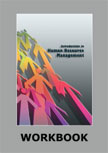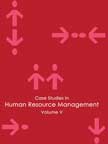Leadership Training and Development at the BBC
|
|
ICMR HOME | Case Studies Collection
Case Details:
Case Code : HROB087
Case Length : 15 Pages
Period : 2000-05
Pub Date : 2006
Teaching Note :Not Available
Organization : BBC
Industry : Media and Broadcasting
Countries : Britain
To download Leadership Training and Development at the BBC case study
(Case Code: HROB087) click on the button below, and select the case from the list of available cases:

Price:
For delivery in electronic format: Rs. 400;
For delivery through courier (within India): Rs. 400 + Rs. 25 for Shipping & Handling Charges
» Human Resource and Organization Behavior Case Studies
» HRM Short Case Studies
» View Detailed Pricing Info
» How To Order This Case
» Business Case Studies
» Area Specific Case Studies
» Industry Wise Case Studies
» Company Wise Case Studies

Please note:
This case study was compiled from published sources, and is intended to be used as a basis for class discussion. It is not intended to illustrate either effective or ineffective handling of a management situation. Nor is it a primary information source.
Chat with us

Please leave your feedback

|
|




<< Previous
Background Note
|
The BBC was founded on October 18, 1922, as the British Broadcasting Company, by
a group of wireless manufacturers including Guglielmo Marconi (Marconi),
inventor of the radio. Regular broadcasting began from Marconi's London studio
on November 14, 1922. The company's mission was 'to inform, educate, and
entertain.'
In 1927, the company's name was changed to the British Broadcasting Corporation
and it was granted a Royal Charter, which put it under the control of the UK
government (Refer Exhibit I for details of the Royal Charter). The BBC, which
had no competitor at that time, generated revenues only through a license fee
(10 shillings) set by the British Parliament and paid for by radio owners.
|

|
It was not allowed to indulge in commercial activities such as advertising.
In 1932, the BBC began broadcasts (BBC Empire Service) outside Britain for
English-speaking people under the then British Empire.
After starting experimental broadcasts in 1932, the BBC officially started
television services in November 1936, under the name BBC Television Service.
It also issued 8.5 million radio licenses covering 98% of Britain's
households.
|
|
During the Second World War, television broadcasts were suspended
for security reasons and these recommenced only in 1946. Though
television services were suspended during the War, the BBC continued
with its radio broadcasts.
It earned a reputation for honest and
accurate news reporting and its 9 o'clock news became very popular.
The BBC Empire Service, which was renamed BBC External Service in
1940, was broadcasting radio programs in 40 languages by the end of
the War. The BBC acquired the reputation of being impartial and its
news was regarded as authoritative. |
In 1946, a combined license fee for television and radio of
£2 was introduced. The Wireless Telegraphy Act of 1949 required any person who
possessed a television set to pay the license fee.
Till the early 1950s, radio dominated over television in Britain. There were
around 12 million exclusive radio licenses while the combined licenses for radio
and TV were only 350,000. The budget allocated for the television division was
also negligible. However, this scenario changed with the coronation of Queen
Elizabeth II in 1953. For the first time, television was allowed to cover a
royal ceremony and it was estimated that around 20 million TV viewers worldwide
watched the coronation ceremony...
Excerpts
>>
|
|










